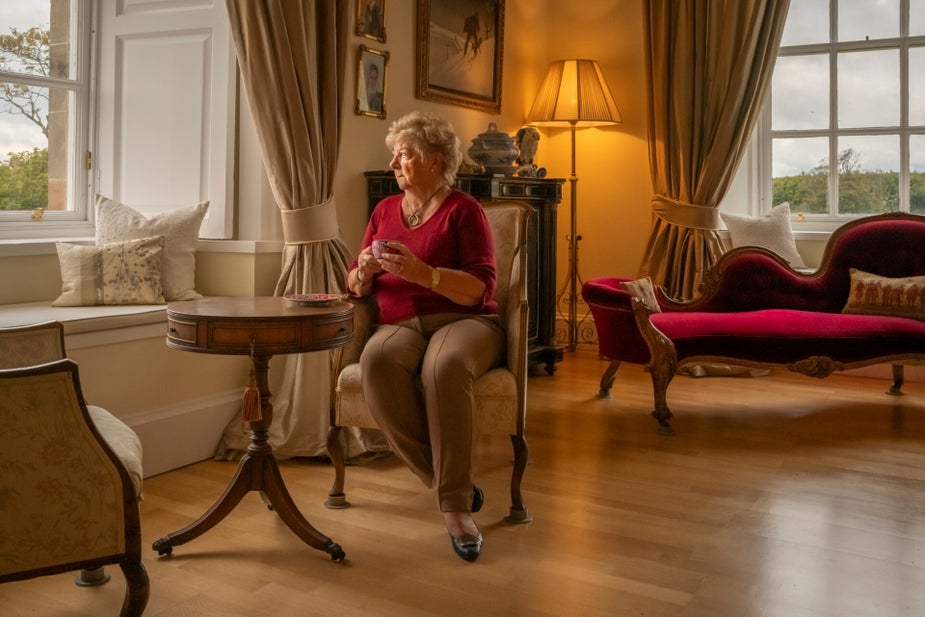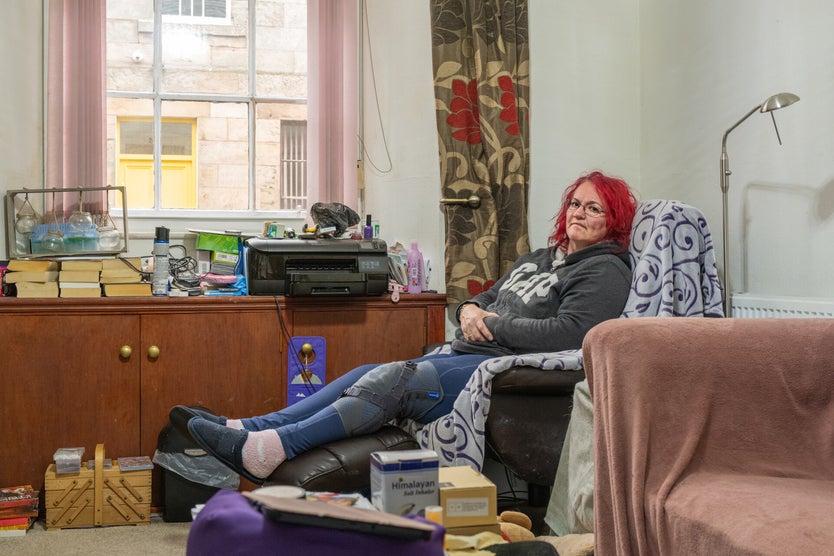Living Alone in Britain. Choice and Circumstance.

As Long as I Keep Busy.
England.
Photography & text by Neil Goodwin.
As Long as I Keep Busy is a social documentary that explores the lives of people living alone in the UK. It was inspired by conversations with friends and acquaintances who live alone. Nine million people live alone in the UK, projected to increase to over 10 million in the next decade. The main reasons for living alone relate to living longer and divorce. The challenges of living alone are not just financial but also relate to loneliness, isolation, unhappiness and ill health.
In developing As Long as I Keep Busy, I concluded that photographing participants would be insufficient to achieve the project’s aim of adding to the knowledge about living alone, and that additional information was required. To achieve that, participants’ life stories, including feelings about living alone, are documented and summarised before being signed off by participants. This is all part of the project being wholly participative with the people involved. Because feelings about living alone are not related to age, income, education gender or ethnicity, the project includes a wide range of participants, reflected in the sample of participants shown here. I discovered that some of the thirty participants have had challenging life experiences; some have established careers whilst others are seeking to re-establish their lives; and some have lost their life partner whilst others are still looking for one.
Research shows that loneliness can make people depressed and irritable and increase mortality by up to 50 per cent; whilst the adverse impact of loneliness on mental health can result in loss of hope, energy and contribution with many daily lives spent in quiet desperation. Loneliness can make people feel disconnected from others, as if they do not belong, Consequently, participants who experience loneliness talk about the importance of the quality, rather than the quantity, of relationships, coupled with a desire for acceptance, feelings that many of us often conceal.
It has been reported that that there are 2.4m chronically lonely people in the UK. Before the Covid-19 pandemic one in five people reported being often or always lonely. Now, over 40 per cent of UK adults report feeling lonelier whilst thirty-one percent of UK adults often feel alone, as though they have no one to turn to; and a third of UK adults will not have had a meaningful conversation in the past week. Crucially, more than a quarter of UK adults say they worry something will happen to them and no one will notice. It was surprising that in 2020, the then Chair of the Royal College of General Practitioners lamented the existence of an epidemic of loneliness in Britain.
The project’s title reflects the refrain of many of the participants in response to the challenges of living alone. Many talked about the need to tackle negative thoughts and feelings by distracting themselves with work, exercise or hobbies. Many rely on their friends although they are sensitive to not burdening them too much because they have their own lives, families and relationships. In undertaking the project, I discovered that it is important to distinguish between living alone and being alone. Some people have chosen to live alone and feel positive about it, citing advantages such as personal freedom, and the opportunity to refocus their lives. To provide balance in the project, they too are represented in As Long as I Keep Busy.
Photo above:
Marion. While she acknowledges she is lucky in many ways but cannot help thinking that life is unfair because the retirement plans she made with her husband, who died a few years ago, were never realised. She now doesn’t think about the future.

Photo left:
Rupert spends much of each day watching TV unless he can take his two younger children to school. Often, he sees largely empty days stretching ahead: “Although I talk to people, I don’t know them. There’s no intimacy… it’s like living in a desert”

Photo left:
Eddie has suffered from depression all his life. He never married and has no family. He often wakes in the night feeling anxious and lonely. Nevertheless, he walks every day, listens to the radio and reads. He also meets regularly with one close friend and a befriending volunteer.

Photo left:
For much of her life Sammi has felt an outsider and that nobody cares. She experiences loneliness weekly, describing it as feelings of desperation and 'unwantedness'. The feelings can last for days but she challenges them by wild water swimming and meeting friends.
Given the increasing importance of living alone it is perhaps unsurprising that there are now numerous charities and befriending organisations focusing on the challenges of what has become a national and international social phenomenon. Many will say that the current UK cost of living crisis will exacerbate the challenges. There is a UK government strategy for tackling loneliness focusing on reducing stigma to help people talk about loneliness; including relationships and loneliness in policy making; and improving the evidence base on loneliness to drive future action. However, whilst government policy will help, for example by providing more financial support for local charities, addressing the challenges of living alone and loneliness in particular is a societal issue.
As Olivia Lange says in her 2017 book, The Lonely City, “…loneliness is not only personal but also political: the pursuit of individual happiness should neither trump nor excuse our obligations to each other.”

Photo left:
Although he remains active, James experiences feelings of loneliness, often during the evenings. Despite watching television or reading, the feelings wash over him. However, to increase his social interactions he recently contacted a befriending service for support.

Photo left:
After ten years of marriage, Liz’s husband died suddenly in an accident, and she
has lived alone since. Liz is now beginning to reappraise her life:
“The life I had with [my husband] was amazing but now I find life frustrating, underwhelming, boring.”

Photo left:
Joan, by her own admission Joan is an introvert, believing that makes it easier for
her to live alone, which she enjoys. She argues that living in a cosmopolitan and liberal city also makes it easier:
“The context of where you live matters because it influences how you can live your life.”
You can read more about As Long as I Keep Busy, including meeting participants and reading their life stories at www.livingaloneuk.com
Thanks for reading.